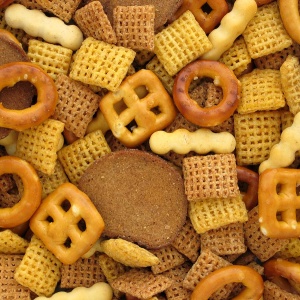
Two letters in the journal Cell Metabolism respond to the recent paper by Hall et al., Ultra-Processed Diets Cause Excess Calorie Intake and Weight Gain: An Inpatient Randomized Controlled Trial of Ad Libitum Food Intake. See our Building Block on disagreements about ultra-processed foods here: What is ultra-processed food? And why do people disagree about its utility as a concept?
In one letter, by Monteiro et al. (creators of the NOVA food classification scheme), the authors make four points:
- The nature of ultra-processed foods: while all four categories of the NOVA system contain foods that have been processed to some extent (albeit minimally in some cases), so-called ultra-processed foods are distinct from the other categories in that they contain ingredients rarely used in domestic food preparation (e.g. protein isolates, or flavours that mask the basic ingredients) and are manufactured using processes with no domestic equivalent (e.g. high-temperature extrusion and moulding).
- Cost: while the non-ultra-processed meals used in the Hall et al. study were about 40% more expensive than the ultra-processed meals, ultra-processed diets can actually be more expensive than freshly prepared meals in some countries such as Brazil.
- Product reformulation: Monteiro et al. argue that simply reducing sugar, fat or salt content in ultra-processed foods is unlikely to make them healthy, since some additives and “advanced glycation end products created by high-temperature extrusion” could cause disease by affecting microorganisms in the gut.
- Global implications: while supplies of ultra-processed foods may have reached saturation point in high-income markets, consumption of such food is still accelerating in lower-income countries.
In the other letter, Ludwig et al. argue that researchers should be cautious when extrapolating from short-term studies on food intake and weight gain, such as the Hall et al. paper. Ludwig et al. make two points:
- Since the unprocessed and ultra-processed diets in the Hall et al. paper had different nutrient profiles in some respects, e.g. the unprocessed diet had three times as much fibre as the ultra-processed diet, the effects of the two diets on weight gain might not be purely due to the degree of processing of food in each diet.
- Some food in the ultra-processed diet in the Hall et al. paper, such as white bread and potato chips, have been shown to contribute to weight gain in other studies, whereas other foods that are arguable just as highly processed, such as olive oil (which Ludwig et al. note is produced by removing all the fibre and fully disrupting the natural food structure), have the opposite effect. Ludwig et al. argue that it is therefore important to understand the mechanisms by which food processing affects energy intake and weight change.
References
Monteiro, C.A., Cannon, G., Moubarac, J.C., Levy, R.B., Louzada, M.L.C. and Jaime, P.C., 2019. Freshly Prepared Meals and Not Ultra-Processed Foods. Cell Metabolism. In Press, Corrected Proof.
Ludwig, D.S., Astrup, A., Bazzano, L.A., Ebbeling, C.B., Heymsfield, S.B., King, J.C. and Willett, W.C., 2019. Ultra-Processed Food and Obesity: The Pitfalls of Extrapolation from Short Studies. Cell Metabolism. In Press, Corrected Proof.
Read the letters here (Monteiro et al.) and here (Ludwig et al.). See also the Foodsource building block What is ultra-processed food? And why do people disagree about its utility as a concept?







Post a new comment »